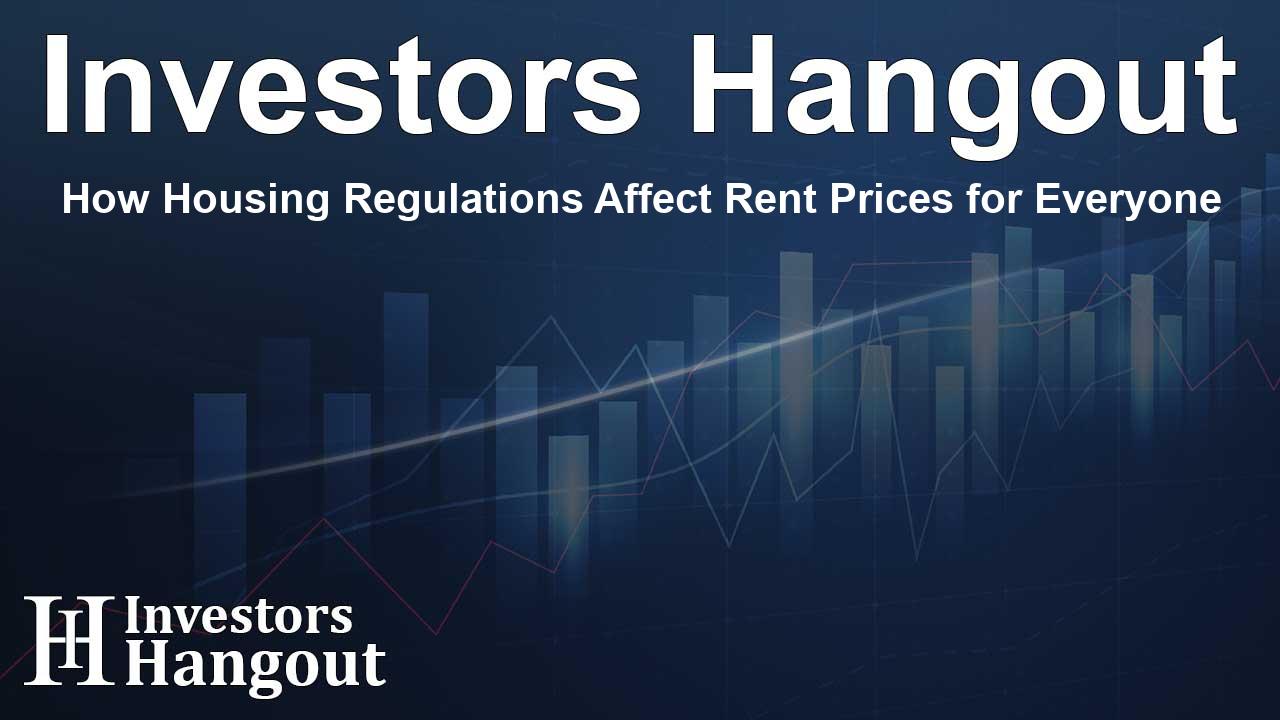How Housing Regulations Affect Rent Prices for Everyone

Understanding the Impact of Housing Regulations
Housing regulations are often enacted with good intentions, aimed at providing support to renters and ensuring accessible housing options. However, according to recent findings, these regulations may unintentionally increase rent costs for vulnerable populations. This raises critical questions about the efficacy of such policies and their ultimate impact on housing affordability.
The Study Behind Rising Rent Costs
A comprehensive study carried out by economists at MetroSight reveals alarming patterns regarding how specific regulations influence the cost of renting homes. The study was sponsored by the National Apartment Association and the National Multifamily Housing Council, which underscores the importance of scrutinizing housing policies for their real-world effectiveness.
Key Takeaways from the Research
This investigation delved into various regulations, including eviction laws, resident screening procedures, and source-of-income policies, to understand their effects on rental prices. Notably, it utilized two significant datasets: one from CoStar Group covering market-level data and another from the U.S. Census Bureau’s American Community Survey.
Some striking findings were presented:
- Source-of-income regulations: These rules have been linked to rent increases ranging from 5.2% to 5.3%, translating to about $876 to $1,104 more annually per rental unit.
- Eviction laws: Researchers found that these laws could hike rent prices by 5.9% to 6.3%, equating to an increase of approximately $1,092 to $1,224 each year per unit.
- Resident screening policies: These were shown to contribute to further rent hikes of 1.5% to 3.4%, which amounts to an additional $252 to $708 annually.
What Does This Mean for Renters?
NAA President and CEO Bob Pinnegar highlights the urgency of responsible policy creation. He warns that if lawmakers do not fully grasp the implications of these regulations, renters could bear the brunt of unintended consequences. The focus should shift to sustainable solutions that not only address regulatory needs but also enhance the housing supply and overall affordability.
The Need for Balanced Policies
Moreover, NMHC President Sharon Wilson Géno emphasizes the necessity of fostering a dialogue around these findings. She stresses that while the objective behind these regulations is often to protect renters, the adverse effects manifest most significantly on lower-income families. It’s imperative to engage in a policy conversation that not only supports renters but also ensures that housing remains within reach for everyone.
Looking Ahead: Housing Affordability Challenges
As the country faces ongoing challenges related to housing affordability, it's crucial to reflect on how regulatory frameworks are structured. Ensuring these regulations do not inadvertently inflate rent prices is vital to achieving a healthy rental market that serves all levels of income.
Metrosight’s founder, Dr. Issi Romem, notes the striking reality that the burdens of such regulations are often felt most by those they are intended to help—lower-income renters and residents of small multifamily homes. Recognizing this disparity is the first step toward advocating for equitable housing solutions.
Frequently Asked Questions
What is the main focus of the study conducted by MetroSight?
The study investigates how various housing regulations affect rent costs, particularly for low-income renters.
Which types of regulations are found to increase rent prices?
Source-of-income regulations, eviction laws, and resident screening policies have all been linked to increases in rental costs.
How can policymakers address these issues?
Policymakers need to create balanced regulations that consider the impact on rent affordability and the housing supply.
What are some key findings from the research?
The findings indicate significant rent increases associated with certain regulations, highlighting the negative consequences for lower-income households.
Why is it essential to understand the effects of housing regulations?
Understanding these effects is crucial for creating effective policies that truly support renters without inadvertently causing higher rents.
About The Author
Contact Kelly Martin privately here. Or send an email with ATTN: Kelly Martin as the subject to contact@investorshangout.com.
About Investors Hangout
Investors Hangout is a leading online stock forum for financial discussion and learning, offering a wide range of free tools and resources. It draws in traders of all levels, who exchange market knowledge, investigate trading tactics, and keep an eye on industry developments in real time. Featuring financial articles, stock message boards, quotes, charts, company profiles, and live news updates. Through cooperative learning and a wealth of informational resources, it helps users from novices creating their first portfolios to experts honing their techniques. Join Investors Hangout today: https://investorshangout.com/
The content of this article is based on factual, publicly available information and does not represent legal, financial, or investment advice. Investors Hangout does not offer financial advice, and the author is not a licensed financial advisor. Consult a qualified advisor before making any financial or investment decisions based on this article. This article should not be considered advice to purchase, sell, or hold any securities or other investments. If any of the material provided here is inaccurate, please contact us for corrections.
